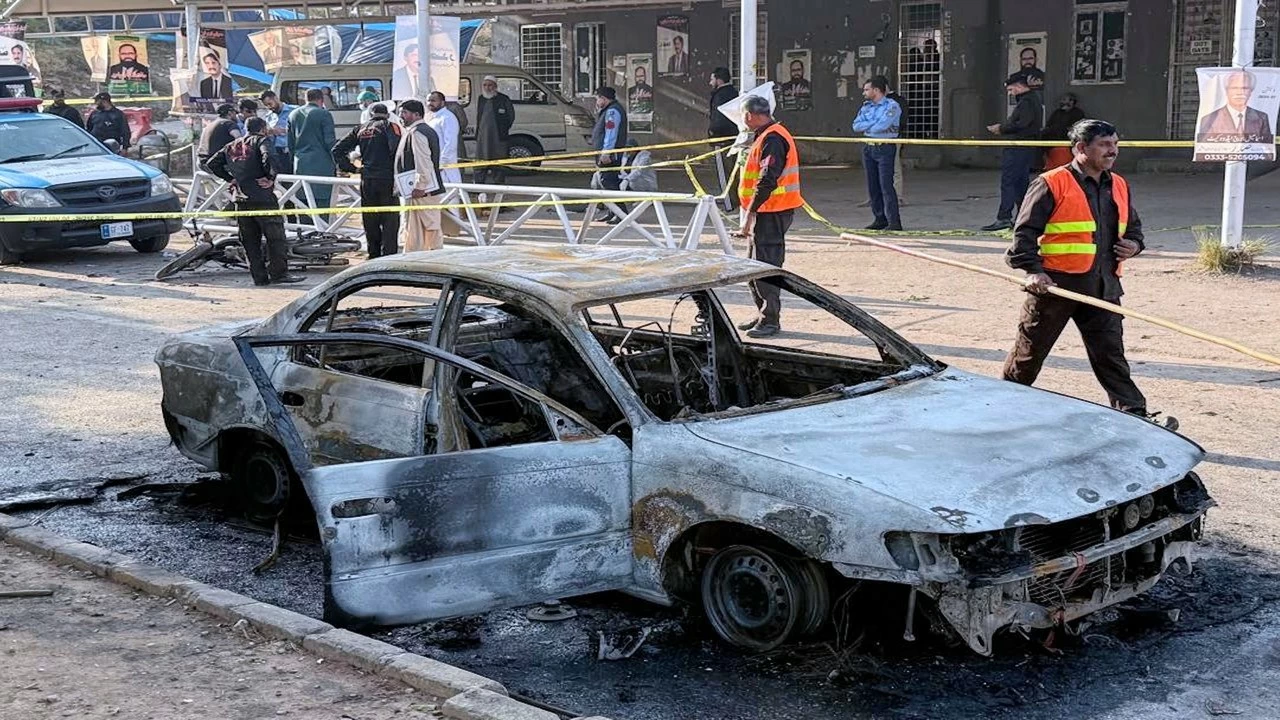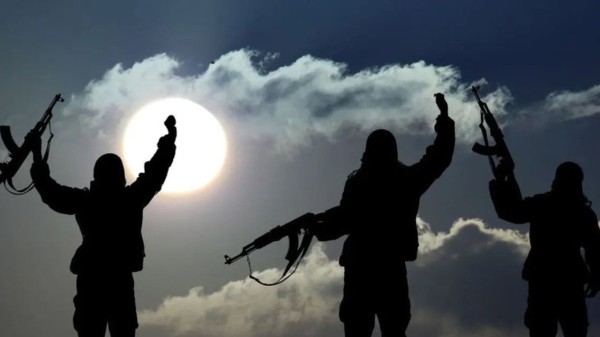

By signing in or creating an account, you agree with Associated Broadcasting Company's Terms & Conditions and Privacy Policy.


By signing in or creating an account, you agree with Associated Broadcasting Company's Terms & Conditions and Privacy Policy.

New Delhi: The Pakistani Taliban claimed a suicide bombing that killed at least 12 people in Islamabad on Tuesday. The attack was rare as most TTP attacks are relegated to border areas and not within city limits. The attack saw people fleeing in panic, leaving shattered glass and charred vehicles on the road outside district court buildings.
“Judges, lawyers and officials who carried out rulings under Pakistan’s un-Islamic laws were targeted,” the Pakistani Taliban (TTP) said while claiming responsibility for the attack. It also threatened more attacks in Pakistan until Islamic law is implemented in the country.
Rustam Malik, a lawyer, told news publication AFP that he “heard a loud bang at the gate” as he was entering the complex. “It was complete chaos, lawyers and people were running inside the complex. I saw two dead bodies lying on the gate and several cars were on fire,” he added.
Pakistan’s Prime Minister Shehbaz Sharif had earlier accused the TTP and separatists from the country’s Balochistan region who have in recent times increased their offensives against the Pakistani state. The attack on Islamabad though is major, with the last suicide attack occurring in December 2022.
The Islamabad bombing came as Pakistani security forces battled militants in northwest Khyber Pakhtunkhwa’s Wana district which is near the Afghan border. “There was an attack in Wana as well last night,” Mr. Naqvi said. “Three people died in that attack. The attacker involved in that attack is an Afghan. Afghanistan is directly involved in that attack.”
Some of the worst fighting observed between Pakistan and Afghanistan has recently been going on. According to the United Nations more than 70 people were killed on both sides, including about 50 Afghan civilians.
While both countries agreed to a fragile ceasefire, they failed to finalise its details during several rounds of negotiations. The talks for a ceasefire eventually collapsed last week and each side blamed the other for it.
To compound the problem, Pakistan’s Defence Minister Khawaja Asif said the Islamabad suicide attack should be seen as “a wake-up call”. “In this environment, it would be futile to hold out greater hope for successful negotiations with the rulers of Kabul,” he wrote on X. This now points the way for further escalations between the two in coming days.
The Islamabad attack in this sense is a major shift in warfare from the TTP. It shows how the militants are no longer confined to remote border zones but are striking in the main cities. This undermines the army’s claim of safeguarding urban centres and at a time when the Pakistani Army is consolidating more power in the country, such affronts to its power might not be taken well.
Compounding the problem for Pakistan is the recently changed dynamic with its neighbour Afghanistan, which is now under the Afghan Taliban rule. The Afghan Taliban have increasingly been almost unwilling to rein in TTP elements operating from Afghan soil, their attacks only increasing in recent time. This could only mean an increase in hostilities as the Pakistan establishment decides to hit back as well, especially after the attack on Islamabad.
Also important to note is that although the TTP and the Afghan Taliban share ideological roots, today their political aims differ. The Afghan Taliban now governs a state, but the Pakistani Taliban remains committed to overthrowing the Pakistani state and replacing it with an Islamic state. The biggest problem from this, as Tuesday’s attack proves, will be for the Pakistani establishment.












